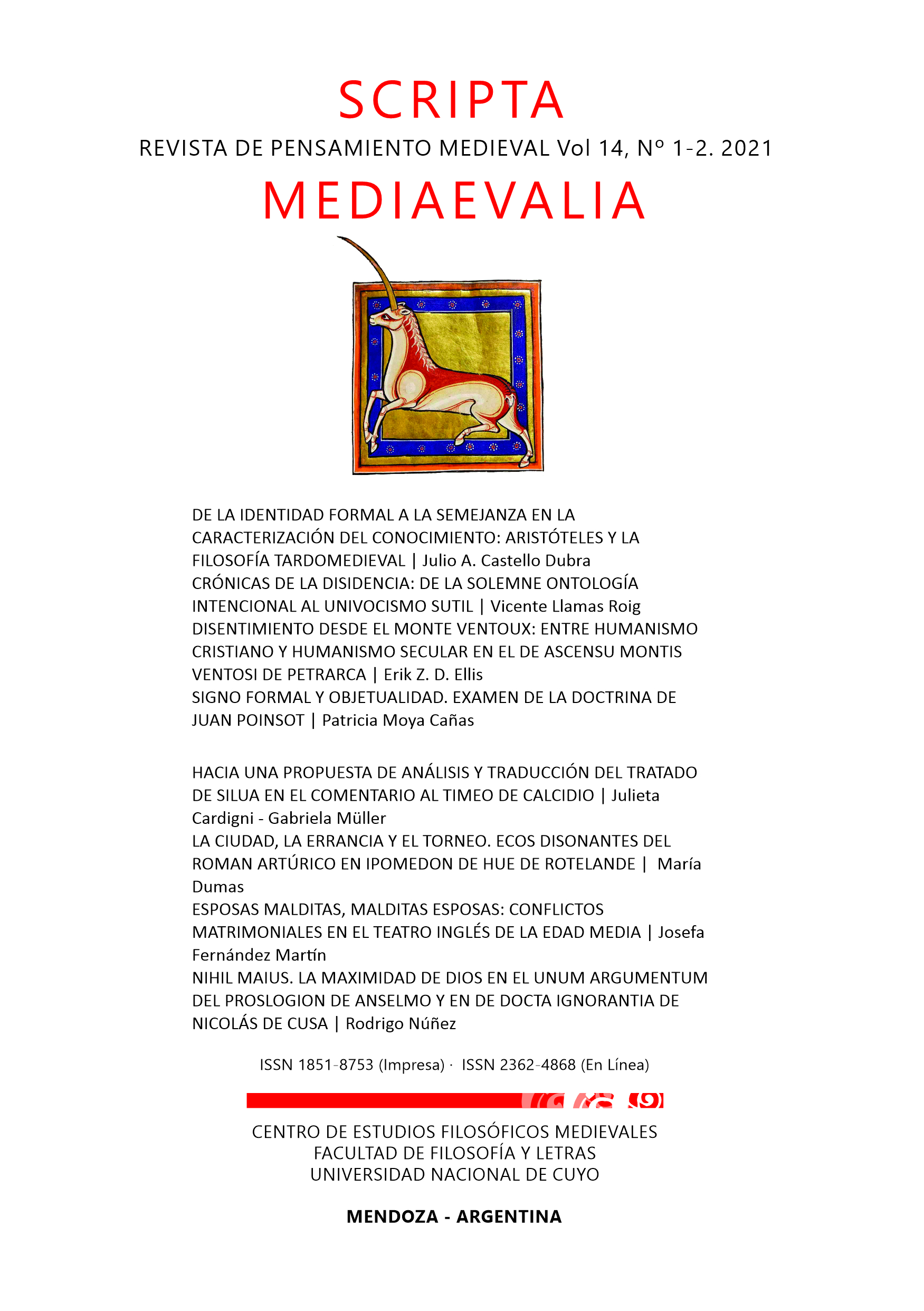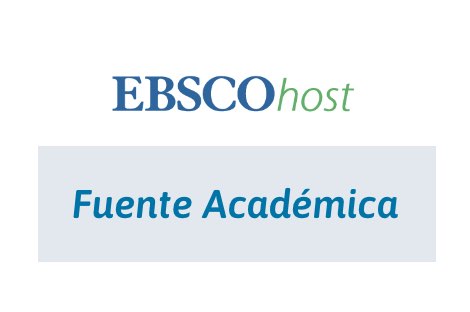Disentimiento desde el Monte Ventoux: entre humanismo cristiano y humanismo secular en el De ascensu montis Ventosi de Petrarca
DOI:
https://doi.org/10.48162/rev.35.003Palabras clave:
Petrarca, Monte Ventoux, recepción de textos literarios, modernidad, humanismoResumen
Durante mucho tiempo, la carta de Ascensu Montis Ventosi de Petrarca ha sido considerada como el documento fundacional del “humanismo renacentista”. Desde el comienzo de los estudios renacentistas a mediados del siglo XIX, esta carta se ha convertido en una suerte de talismán utilizado para invocar el espíritu nuevo y secular del humanismo, un espíritu que, se suele decir, llegó a Italia espontáneamente durante el siglo XIV, logró penetrar los corazones y mentes de los europeos del siglo XV y condujo a cambios supuestamente catastróficos en la cultura, la religión y la política durante los siglos XVI, XVII y XVIII. Esta interpretación, todavía bastante extendida entre quienes no son especialistas, particularmente en el mundo anglosajón, es extremadamente simplista y desconoce la profunda deuda que Petrarca tiene con la tradición clásica y cristiana, ocultando el carácter fundamentalmente religioso de la carta. El presente artículo examina cómo esta carta adquirió tanta importancia en el mundo académico e intelectual, y ofrece una interpretación que enfatiza la continuidad de Petrarca con la tradición, poniendo de relieve el deseo del autor italiano de revitalizar, en lugar de reinventar, las tradiciones de la erudición y contemplación cristianas.
Citas
Ascoli, Albert Russell and Unn Falkheid, eds. Cambridge Companion to Petrarch. Cambridge: Cambridge University Press, 2015.
Beecher, Donald. “Petrarch’s ‘Conversion’ on Mont Ventoux and the Patterns of Religious Experience”. Renaissance and Reformation / Renaissance et Réforme 28, n.° 3 (2004): 55-75.
Billanovich, Giuseppe. “Petrarca e il Ventoso”. Italia Medievale e Umanistica 9 (1966): 349-401.
Bishop, Morris. Petrarch and His World. Bloomington: University of Indiana Press, 1963.
Celenza, Christopher. The Intellectual World of the Italian Renaissance. Cambridge: Cambridge University Press, 2017.
Celenza, Christopher. Petrarch: Everywhere a Wanderer. London: Reaktion, 2017.
Bondanella, Julia Conaway and Mark Musa, eds. The Italian Renaissance Reader. New York: Penguin, 1987.
Burckhardt, Jakob. The Civilization of the Renaissance in Italy. 2.a ed., rev. New York: Phaidon, 1945.
Cassirer, Ernst, Francis R. Johnson, Paul Oskar Kristeller, Dean P. Lockwood, and Lynn Thorndike. “Some Remarks on the Question of the Originality of the Renaissance”. Journal of the History of Ideas 4, n.° 1 (1943): 49–74.
Curtright, Travis. The One Thomas More. Washington, D.C.: The Catholic University of America Press, 2013.
Dotti, Ugo. “I primi sei libri delle familiari del Petrarca”. Giornale Storico della Letteratura Italiana 150 (1973): 1- 20.
Durling, Robert M. “The Ascent of Mt. Ventoux and the Crisis of Allegory”. Italian Quarterly 69 (1974): 7-28.
Enenkel, K. A. E., Betsy de Jong-Crane, and P. Th. M. G. Liebregts, eds. Modelling the Individual: Biography and Portrait in the Renaissance. Amsterdam: Rodopi, 1998.
Falkeid, Unn. “Petrarch, Mont Ventoux and the Modern Self”. Forum Italicum 43, n.° 1 (2009): 5-28.
Gerber, Amanda. Medieval Ovid: Frame Narrative and Political Allegory. New York: Palgrave Macmillan, 2015.
Huygens, R. B. C., ed. Accessus ad auctores. Berchem- Bruxelles: Latomus, 1954.
Kirkham, Victoria and Armando Maggi, eds. Petrarch: A Critical Guide to the Complete Works. Chicago: Chicago University Press, 2009.
Knöbl, Wolfgang. “Observaciones sobre el concepto de modernidad”. Sociología Histórica 7 (2017): 167-185.
Martinelli, Bortolo. Petrarca e il Ventoso. Bergamo: Minerva Italica, 1977.
Mazzotta, Giuseppe. “Petrarch’s Epistolary Epic: Letters on Familiar Matters: Rerum Familiarium Libri”. In Petrarch: A Critical Guide to the Complete Works, edited by Victoria Kirkham and Armando Maggi, 309-319. Chicago: Chicago University Press, 2009.
Mazzotta, Giuseppe. The Worlds of Petrarch. Durham: Duke University Press, 1993.
Minta, Stephen. Petrarch and Petrarchism: The English and French Traditions. New York: Barnes and Noble Books, 1980.
Petrarca, Franciscus. Ad Dyonisium de burgo sancti sepulcri ordinis sancti Augustini et sacre pagine professorem, de curiis propriis. In Petrarch's Ascent of Mount Ventoux: The Familiaris IV, I, edited by Rodney Lokaj, 94-106. Rome: Edizioni dell’Ateneo, 2006.
Quondam, Amadeo. Petrarca, l'italiano dimenticato. Milan: Rizzoli, 2004.
Rico, Francisco. Vida u obra del Petrarca. Padua: Antenore, 1974.
Robinson, James Harvey. Petrarch: The First Modern Scholar and Man of Letters. New York: Putnam, 1914.
Symonds, John Addington. Renaissance in Italy: Italian Literature. Vol. 2. Reprint. London: John Murray, 1921.
Taylor, Charles. Sources of the Self: The Making of the Modern Identity. Cambridge: Harvard University Press, 1989.
Thorndike, Lynn. “Renaissance or Prenaissance?”, in “Some Remarks on the Question of the Originality of the Renaissance”, by Ernst Cassirer, Francis R. Johnson, Paul Oskar Kristeller, Dean P. Lockwood and Lynn Thorndike, 65-74. Journal of the History of Ideas 4, n.° 1 (1943): 49-74.
Trinkhaus, Charles. The Poet as Philosopher: Petrarch and the Formation of Renaissance Consciousness. New Haven: Yale University Press, 1979.
Wheeler, Stephen Michael. Accessus ad Auctores: Medieval Introductions to the Authors (Codex Latinus Monacensis 19475). Kalamazoo: Medieval Institute Publications, 2014.
Whitfield, J. H. Petrarch and the Renascence. Oxford: Basil Blackwell, 1943.
Zuccato, Edoardo. Petrarch in Romantic England. New York: Palgrave Macmillan, 2008.
Descargas
Publicado
Cómo citar
Número
Sección
Licencia

Esta obra está bajo una licencia internacional Creative Commons Reconocimiento-NoComercial-CompartirIgual 3.0.



















